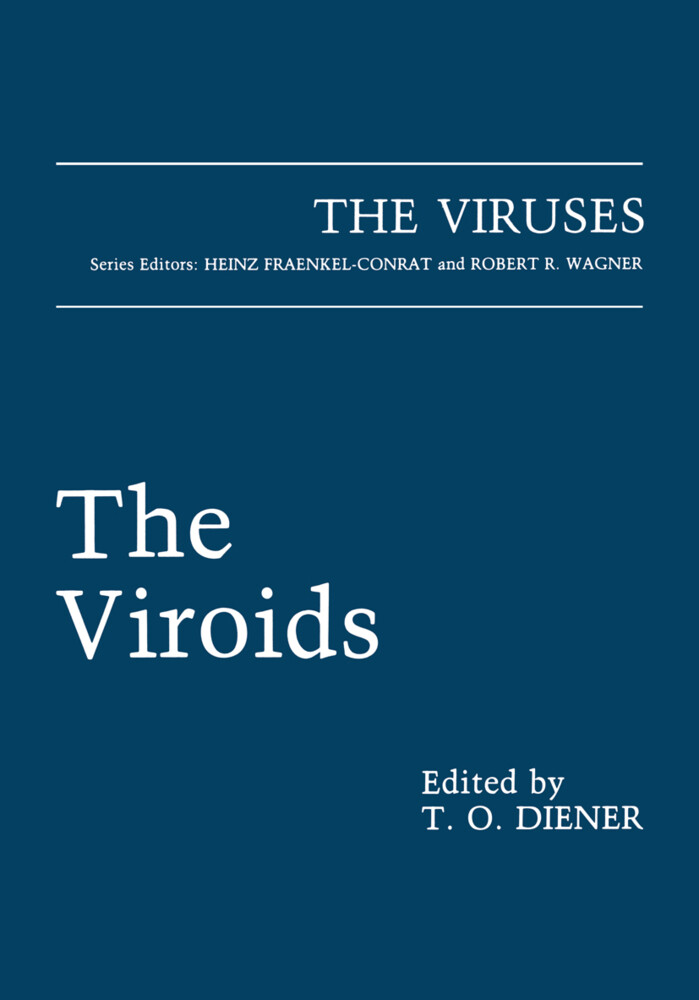
Zustellung: Sa, 18.01. - Di, 21.01.
Versand in 2 Tagen
VersandkostenfreiBestellen & in Filiale abholen:
More than seven years have passed since the first monograph on viroids was published. At that time, the existence of viroids as a novel type of pathogen far smaller than viruses had been amply demonstrated and some of their unusual molecular properties had been elucidated, but the entry of molecular biology into viroid research was still in its infancy. Since that time, our knowledge of the molecular properties of viroids has increased exponentially and viroids have become even more fasci nating than was the case seven years ago. Today, aside from transfer RNA, viroids are probably the best known type of RNA-at least from a struc tural standpoint. Much less is known of the mechanisms of viroid func tion, such as the exact pathway and enzymology of viroid replication and the biochemistry of viroid pathogenesis. Recently, however, emphasis in viroid research has shifted from structural to functional themes and im portant beginnings have been made in the elucidation of viroid struc ture-function relationships. With the discovery of viroidlike RNAs within the capsids of certain plant viruses and the finding of surprising structural similarities between viroids and plant satellite RNAs, the conceptual gap between viroids and conventional viruses has significantly narrowed. Even beyond virology, connecting links with cellular RNAs have come to light and the long isolation of viroids land "viroidologists"J has come to an end.
Inhaltsverzeichnis
I. Organisms, Viruses, and Viroids. - II. The Biochemical Significance of Viroids. - III. The Possible Evolutionary Significance of Viroids. - IV. References. - I. General Section. - 1 Biological Properties. - 2 Physical Chemical Properties: Molecular Structure (Primary andSecondary). - 3 Physical Chemical Properties: Structure Formation. - 4 Viroid Function: Subcellular Location and in Situ Association withCellular Components. - 5 Viroid Function: Viroid Replication. - 6 Viroid Function: Molecular Biology of Viroid Host Interactions. - 7 Possible Viroid Origin: Viroids, Virusoids, and Group I Introns. - 8 Possible Viroid Origin: Encapsidated Viroidlike RNA. - II. Special Section. - 9 Potato Spindle Tuber. - 10 Citrus Exocortis. - 11 Chrysanthemum Stunt. - 12 Cucumber Pale Fruit. - 13 Coconut Cadang-Cadang. - 14 Hop Stunt. - 15 Chrysanthemum Chlorotic Mottle. - 16 Columnea Latent. - 17Avocado Sunblotch. - 18 Tomato Planta Macho. - 19 Tomato Apical Stunt. - 20 Tomato Bunchy Top. - 21 Burdock Stunt.
Produktdetails
Erscheinungsdatum
01. November 2011
Sprache
englisch
Auflage
Softcover reprint of the original 1st ed. 1987
Seitenanzahl
368
Reihe
The Viruses
Herausgegeben von
T.O. Diener
Verlag/Hersteller
Produktart
kartoniert
Abbildungen
366 p.
Gewicht
692 g
Größe (L/B/H)
254/178/20 mm
Sonstiges
Paperback
ISBN
9781461290353
Entdecken Sie mehr
Bewertungen
0 Bewertungen
Es wurden noch keine Bewertungen abgegeben. Schreiben Sie die erste Bewertung zu "The Viroids" und helfen Sie damit anderen bei der Kaufentscheidung.










